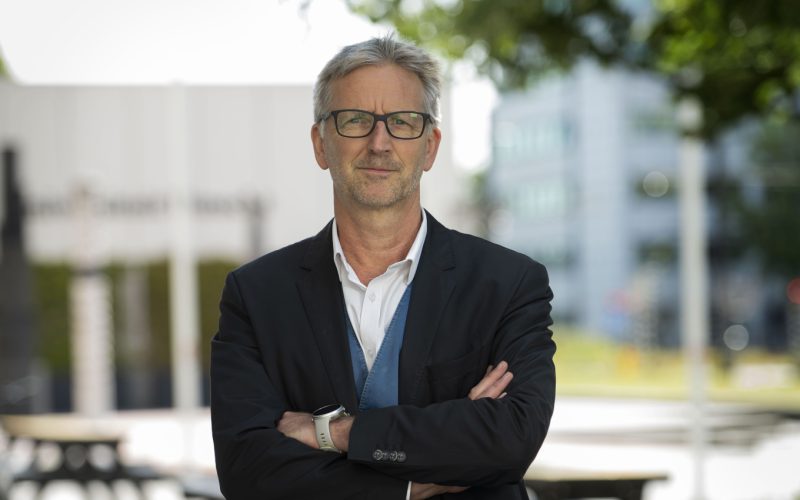Leendert Looijenga delivered his oration at the Academy Building of Utrecht University. One of his messages as professor of translational germ cell oncology and fertility: ‘Individual success is a group result.’
Leendert Looijenga trained as a medical cell biologist at the University of Groningen. During his graduate internship, he analysed the DNA of germ cell tumour tissue after chemotherapy. This is where his interest in the combination of developmental biology and the development of cancer began. Since July 2023, Leendert has been appointed professor of translational germ cell oncology and fertility at the Faculty of Medicine of Utrecht University.
‘The title of my oration is: In the germ disrupted. I chose this because tumours can arise from disruptions in the first steps of the development of the germ cell and its environment. These disruptions can also lead to reduced or even completely absent fertility. My research focuses on understanding these processes, creating opportunities for earlier diagnosis and possibly better treatment of the arising diseases.
‘I share several messages in my speech. One is that individual success is a group result. In this, a long(er) focus on a specific area is often valuable and sometimes even necessary to achieve results that are also useful in daily clinical practice. This undoubtedly depends on asking relevant questions and being able and willing to use new developments.’
He also indicates that contacts with patients and their parents/carers are of great importance for conducting successful translational research. After all, this is how the (clinically) relevant research questions can be asked. ‘For this, the Princess Máxima Centre, in collaboration with the UMC Utrecht/WKZ, as well as the other faculties within the UU is a good environment,’ Looijenga said.
My goal is to cure patients with germ cell tumours without side effects, through optimal diagnostics and follow-up. This includes developing alternative treatments for those patients who do not respond (or not enough) to standard treatment. In addition, we aim to restore fertility in children successfully treated for a cancer diagnosis, where infertility may occur as an unintended side effect.
Finally, he explains that understanding germ cell tumours is also important for regenerative medicine. ‘Here, preventing complications due to aberrant behaviour of cells is an important prerequisite for clinical use. Understanding the origin of germ cell tumours can make an important contribution to this.
Looijenga aims to further improve ongoing research. The clinical implementation of the developed biomarkers, especially for liquid biopsies, is a high priority in this. Ongoing international (prospective) studies help make this possible. In addition, I focus on understanding therapy insensitivity and developing better therapies for these patients. And further development of a platform, enabling fertility recovery of children after successful cancer treatment. Further research on the role of germ cell tumours for safe regenerative medicine is also on my schedule. Finally, based on collaboration, I want to further develop our activities on germ cell tumours and fertility within Utrecht and become a leading centre in the national and international context.’
